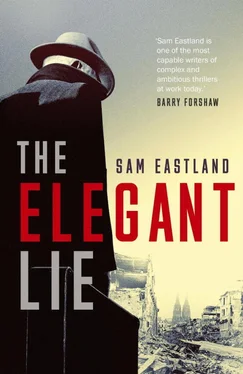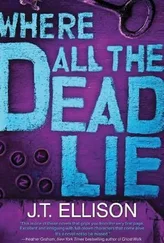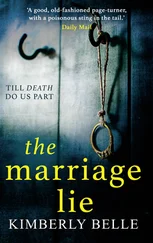‘Where is this airfield?’ asked Carter.
‘As I have already explained to Mr Dasch,’ said Garlinsky, ‘it is located in Czechoslovakia, in what you once called the Sudetenland. It is near the old spa town of Carlsbad, known to the Czechs as Karlovy Vary. It was a popular resort before the war. The Czechs built the runway not far from the town as an emergency landing strip for a nearby military airbase. If there was a crash on the runway at the base, other inbound planes could divert to the emergency strip. The base was taken over by the Germans when they marched into the Sudetenland in 1938, but they never used it because the runways weren’t long enough for their heavy bombers. So, instead, they built a different airbase one hundred kilometres to the north. The emergency runway was forgotten. That is why we thought it would be safe, as long as everyone moved quickly. As of last year, Czechoslovakia is under Communist control, but people from the west still come and go and planes from western countries, military and civilian, still overfly the area on their way down to Turkey and Greece. The sight of a Canadian transport plane in the skies above Karlovy would not have aroused suspicion, and as far as we know the wreckage has not been discovered, but that situation could change at any moment.’
‘Tell your people,’ said Dasch, ‘that I will pay for the whisky they lost.’
‘It’s not the whisky I’m concerned about.’
‘Then what?’ demanded Dasch.
‘Our concern,’ explained Garlinsky, ‘is that the discovery of that plane, along with its cargo, will somehow lead the authorities back to us.’
‘We all share in that risk,’ said Dasch.
‘Perhaps,’ replied Garlinsky, ‘but the responsibility lies entirely with you. If the aircraft had exploded and everything on board had been incinerated, the equation might be different. But since this did not happen, it is safe to say that the discovery of that cargo by Communist authorities is inevitable. When that occurs, the Russians will learn of this and they will waste no time finding out where it came from, whom it belonged to and where it was going. I know the Russians, and I can assure you that this is a matter that they will pursue beyond what you and I would consider sane. They will get to the bottom of it, and that is where they will find us. In the meantime, you will have created an international incident, the type of which both the Soviet and Allied governments are painstakingly trying to avoid. Do you have any idea what will happen to you then, Mr Dasch?’
‘I can’t say that I do,’ he replied.
‘At the very least, you would spend the rest of your life in prison,’ replied Garlinsky. ‘That is if the Allies get to you first. More likely, it will be the Soviets, in which case you and everyone around you will simply be found dead. Am I making myself clear, Mr Dasch?’
‘Yes,’ answered Dasch, ‘in everything except what you would like me to do about all this!’
‘Make sure that any trace of the cargo that might lead back to us has been destroyed.’
He still hasn’t mentioned the money, thought Carter. How does he expect to keep that secret?
‘Very well,’ Dasch said. ‘I’ll send Ritter first thing in the morning.’
‘I’m afraid that will not do at all,’ said Garlinsky.
‘Why on earth not?’ demanded Dasch. ‘Ritter can get the job done.’
‘Mr Ritter is wanted by the Soviet authorities, a fact of which I’m sure you are aware. If he should fall into their hands—’
‘Enough!’ boomed Dasch, bringing his hands crashing down upon the desk.
In the seconds that followed, Garlinsky did not move. It was as if the man had turned to stone.
Finally, Dasch spoke again. ‘Are you suggesting that I go myself? The German police are watching me. I am convinced of that.’
‘Not you,’ answered Garlinsky.
‘Then who—’ Dasch began.
Garlinsky cut him off. ‘Why don’t you send Mr Carter?’ he asked.
Carter felt the breath catch in his throat.
‘Well,’ said Dasch, ‘I suppose I could do that, provided Mr Carter agrees.’
Garlinsky smiled at Carter. ‘Surely you would not want to disappoint your employer, after all he’s done for you.’
Carter said nothing. Does he know who I am? he wondered. Does he know that I have seen the money? None of that seemed possible, and yet the idea would not leave his head, rushing in circles around the inside of his skull like a fish trapped in a net.
‘Then it is settled!’ Garlinsky glanced at his watch. ‘Our time is up,’ he said.
Carter and Dasch walked him out to the gate and watched in silence as Garlinsky set off across the field, the moonlight like a cape upon his back, until at last he vanished in the mist.
‘How did he know I was an American,’ asked Carter, ‘before I even opened my mouth? Did you tell him?’
‘No,’ replied Dasch. ‘I just assumed he heard your voice before you walked into the room.’
‘Was he right?’ asked Carter. ‘Is Ritter really wanted by the Russians?’
Dasch sighed heavily. ‘Did he tell you what he did in the war?’
‘He said he was an interrogator.’
‘That is correct,’ answered Dasch. ‘And did he tell you what happened to those Russian officers after he had finished questioning them?’
‘No. He never mentioned that.’
‘They were shot.’
‘All of them?’ asked Carter.
‘They did not make exceptions.’
‘Then how do the Russians know about it, assuming the bodies were buried?’
‘Because wherever Ritter had been, they dug up those bodies by the hundreds. Or thousands. Ritter told me he lost track of their numbers. But the Russians didn’t. They remember everything. And who can blame them? The war you fought may be over, Mr Carter, but what happened between Ritter and the Russians will not come to an end until the last of them is dead, and probably not even then.’
‘And you really think he would have gone if you had told him to?’
Dasch turned and looked at Carter. ‘Ritter would do anything I ask, and that is my burden, not his.’
‘What Garlinsky’s asking for,’ said Carter, ‘it won’t be easy.’
‘Ah, but you haven’t heard my plan.’
‘Whatever it is, it better be a good one.’
‘It might just be the best I’ve ever had.’
At the end of the road leading to Dasch’s compound, a set of headlight beams cut through the darkness. It was Ritter, returning from his errand to fetch supplies to repair the broken window.
Carter helped him carry sheets of plywood from the car to the office, along with a bag of nails, a saw and some hammers. Along the way, he explained what had happened.
‘I knew he never should have bought that plane,’ said Ritter. ‘If we had just kept things small and manageable, none of this would have happened.’
‘Too late now.’
‘It was too late from the beginning,’ said Ritter, ‘but we did it anyway.’
Inside the office, they found Dasch pacing back and forth like a cat locked in a cage. ‘You can put all that aside!’ he said, when the two men entered the room. ‘We have important business to discuss.’
Ritter and Carter dumped the wood and nails and hammers on the floor.
‘You told me you had a plan,’ said Carter.
‘Not just a plan,’ replied Dasch. ‘It is a work of genius.’
‘What are you going to do?’
‘It’s not what I am going to do,’ replied Dasch. ‘It’s what you’re doing. You are going on a vacation to the spa town of Karlovy Vary, where people go to sit in vats of mud and lounge around with cucumber slices on their eyes.’
‘That does not sound like something I would do,’ muttered Carter.
Читать дальше











